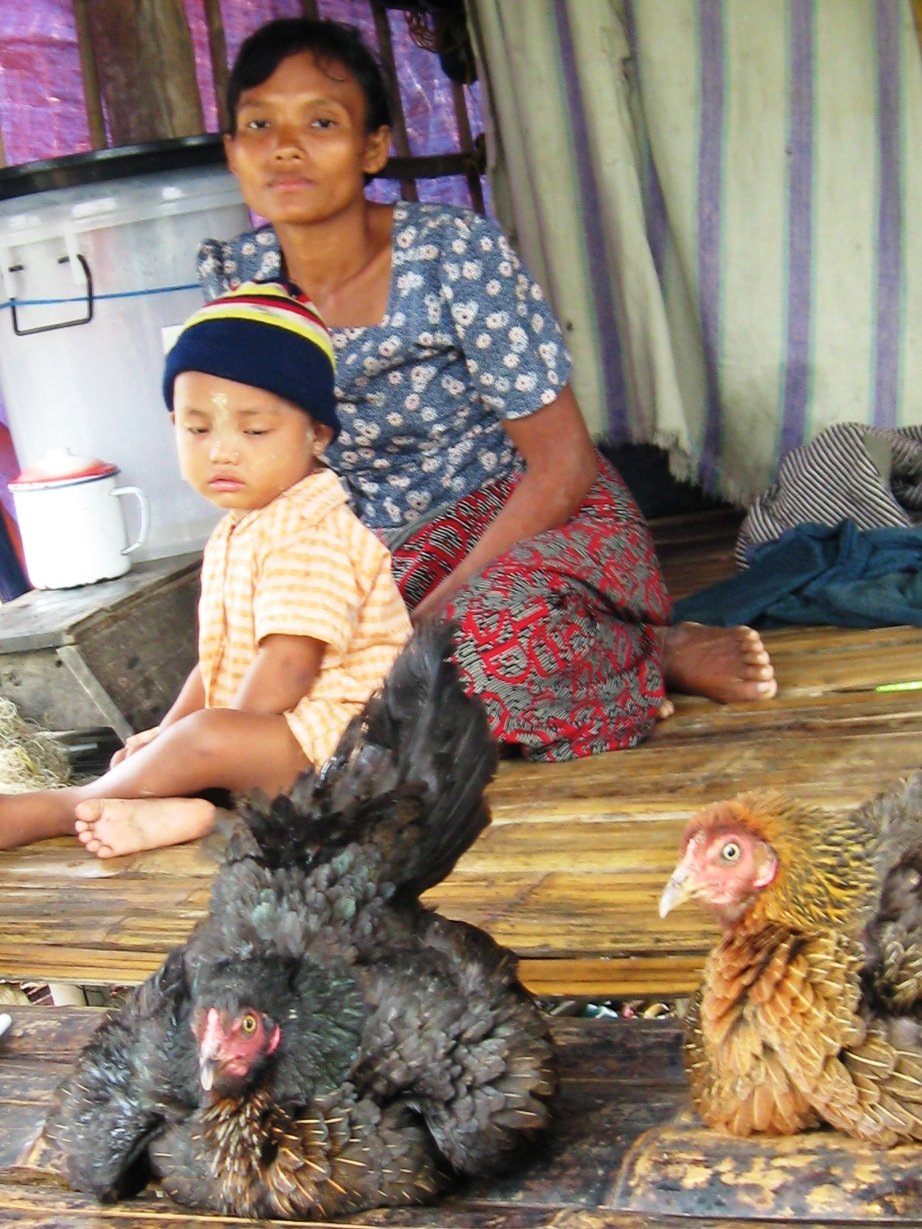"All I have are these two hens,” the mother-of-five told IRIN, pointing to the two birds (purchased after selling her son’s jeans) on the floor of her makeshift hut.
Prior to the cyclone, Khin Shwe earned $10-$20 per month from her backyard livestock farming business, while her fisherman husband earned $15 more.
She had hoped the two chickens would help her re-establish herself, but so far that is not happening. Like other residents of Kayinisu, a village in Dedaye Township in Myanmar’s badly affected Ayeyarwady Delta, she barely has enough money for three meals a day.
According to the UN Food and Agriculture Organization (FAO), more than 68,000 pigs, 525,000 ducks, 7,500 goats, 1.5 million chickens, and 227,000 draught animals were lost to Nargis.
To address this, the government and international community have donated chickens, ducks and pigs to small-scale farmers, targeting the very poor, the landless, or female-headed households. But given the size of the losses, much more is needed.
"Despite the assistance of all stakeholders, so far only a small percentage of the required animals have been covered," Yan Naing Soe, FAO’s national consultant for livestock, told IRIN in Yangon, the former Myanmar capital.
Just 1 percent of the chickens, 20 percent of the ducks and 12 percent of the pigs lost have been replaced, according to the latest figures from FAO. Just 3 percent of buffaloes and cattle - critical for many small-scale farmers in tilling their fields - have been replaced.
It is a huge challenge to restore the backyard livestock farming sector, FAO’s Yan Naing Soe said, adding that it might take more than three years to bring animal numbers back to pre-cyclone levels.
|
Photo: Lynn Maung/IRIN  |
| Backyard livestock breeders are finding it hard to make ends meet in the aftermath of Cyclone Nargis, which ravaged Myanmar's southern coastal area on 2 and 3 May 2008 |
"Since backyard livestock farming is one of the main income generators for some of the poorer cyclone-affected households, we should all keep supporting them,” Yan Naing Soe said.
Incomes in these households have diminished, undermining food security in the area. "Some days we have to skip one or two meals,” 43-year old Myint Than from Kayinisu, who relied on her livestock trade before the cyclone, said.
They have not had any free food distributed since November last year, and no draught animals, poultry, or pigs had been distributed in their village so far, she complained.
Local economy depressed
According to the Post-Nargis Recovery and Preparedness Plan (PONREPP), a three-year medium-term recovery plan released earlier this year, the local economy in much of the affected area remains depressed.
Cash grants and microcredit need to be made available to households which are falling into debt, experts say.
Many have yet to pay off pre-Nargis loans and will have no choice but to borrow again if they want to continue their agriculture, fishing and small-scale livestock businesses.
Reduced incomes - apart from affecting education and health care - could lead to reduced spending on non-rice food items, increasing the risk of an unbalanced diet, the PONREPP report said.
lm/ds/cb
This article was produced by IRIN News while it was part of the United Nations Office for the Coordination of Humanitarian Affairs. Please send queries on copyright or liability to the UN. For more information: https://shop.un.org/rights-permissions





